About CHD Outpatient Behavioral Health Services Springfield
CHD Outpatient Behavioral Health Services is located in the heart of Springfield, Massachusetts. This center is an outpatient care facility that works with adults who are struggling with substance use addiction.
Their care is rooted in evidence based practices but also takes a community centered approach to care. As such, the clinical team here has a vested interest in helping individuals from all walks of life, including members of the LGBTQ community, minorities, and individuals facing homelessness find success in their recovery.
You’ll find that the care team here is committed to helping meet you where you are in your journey to sobriety. They do this by providing culturally competent care, translation services, and even sign language support.
The whole person’s approach to care here means you’ll be supported through cognitive behavioral therapies, trauma informed care, and other therapies that support the recovery of your mind, body, and soul as a whole.
The Springfield Clinic is easy to get to as it’s located right in the heart of the city, with the Connecticut River to the west. You’re close to community spaces including nearby Emerson Wright Park, various shopping centers, and different affordable housing options throughout the city. Forest Park also isn’t too far away.
The town itself is full of resources, and you can get connected to different supports if you want to continue your education or need social services. Depending on your needs, CHD can connect you to appropriate services that will help improve your life.
Known as the birthplace of basketball and home to a variety of museums like the Springfield Armory National Historic Site and the Dr Seuss Memorial Garden, you’ll find plenty of engaging activities to enjoy in the town as you rebuild healthy habits for your life after recovery.
Addiction Treatment Programs
Dual Diagnosis
During dual diagnosis treatment in Massachusetts, you’ll receive integrated care for your mental health and substance use concerns, helping you establish long-term recovery. Dual diagnosis programs may offer detox, inpatient treatment, and/or outpatient care. The key is that they provide integrated treatment for both mental health symptoms and substance use.
Adult Program
When people join an adult program in Massachusetts, they learn about topics such as employment and raising a family while receiving treatment. Some of the common services will include counseling and classes on coping skills, emotional management, communication, and other key life skills. Adult programs can provide inpatient or outpatient treatment.
Senior Rehab
Senior rehab in Massachusetts offers specialized addiction treatment for older adults that addresses their unique challenges. Some of the common services will include counseling and classes on coping skills, emotional management, pain management, and other key life skills. Senior programs can provide inpatient or outpatient treatment.
Young Adult Rehab
Young adult rehab programs in Massachusetts can help young people make healthier life choices and avoid common mistakes. Some of the common services will include counseling and classes on coping skills, emotional management, communication, and other key life skills. Young adult programs can provide inpatient or outpatient treatment.
LGBTQ Friendly Rehab
If you’re looking for a safe space to work on your recovery as an LGBTQ+ person, consider finding an LGBTQ+ friendly rehab in Massachusetts. In addition to typical detox, inpatient treatment, and outpatient care, an LGBTQ+ friendly program may also provide classes about building healthy relationships, overcoming rejection, managing trauma triggers, and more.
Insurance Coverage
Private insurance
Paying for rehab in Massachusetts can be done in multiple ways, including using private insurance. Because plans vary, be sure to contact the insurer to find out what centers are in-network with your coverage and to find out what out-of-pocket costs you might be responsible for.
Self-pay options
In Massachusetts, you can use self-pay, also known as private pay, to cover the costs of rehab. Payment structure may vary depending on the level of care, but you can use a medical loan, write a check, or send money electronically.
Military insurance
For those with military insurance, using your coverage to pay for treatment in Massachusetts can make rehab more accessible. Your insurance plan can pay for some or all of the costs of rehab, especially if you choose a center that’s in the plan’s network. Be sure to check with the insurer to get full details.
Financial aid
One way to pay for rehab in Massachusetts is to use financial aid programs if you qualify. Financial aid options help you manage the cost of treatment by allowing you to use a grant or scholarship. Aid may be available through the center or through community groups in your area.
Medicare
Medicare is a good way to pay for substance use treatment in Massachusetts. Medicare plans may vary, so be sure to find out coverage details and what copayments or deductibles you might be responsible for.
Medicaid
If you qualify in Massachusetts, Medicaid is one of your options when it comes to paying for rehab. Medicaid covers multiple levels of care, and you may have no out-of-pocket costs. However, you’ll need to choose a treatment center that accepts Medicaid.
Levels of Care
- 1
Outpatient Rehab
During outpatient treatment in Massachusetts, each client attends multiple hours of care per week while living independently outside of treatment. Outpatient treatment is commonly a follow-up to residential treatment and may be used to help with skill-building, education, and to practice your new habits in daily life.
Therapies
Cognitive Behavior Therapy
Not everything we think is true or helpful. Cognitive behavioral therapy in Massachusetts teaches you to challenge distorted thinking so you can see things more clearly and choose healthier responses. CBT is a common part of both inpatient and outpatient substance use treatment and may be used to help with skill-building, overcoming problematic behavior, and managing substance use triggers.
Dialectical Behavior Therapy
People want to improve their situation but don’t always know how. Dialectical behavioral therapy in Massachusetts teaches you healthy coping mechanisms and improves your confidence so you can build a better life. DBT is a common part of both inpatient and outpatient substance use treatment and may be used to help with skill-building, overcoming problematic behavior, and managing substance use triggers.
Experiential Therapy
In Massachusetts, experiential therapy helps you express your emotions in non-traditional ways. This makes it much easier to reach long-term recovery. Experiential therapy involves a variety of activities that can make it easier to process trauma and emotions and allow you to break through some of the root issues that hold you back from recovery.
Family Therapy
During family therapy in Massachusetts, clients and their loved ones can address dysfunctional relationships, resentments, and conflicts in order to create healthier relationships that support the client’s recovery. Family therapy sessions generally last 60 to 90 minutes and may include discussing marital issues, codependency, grief, domestic violence, trauma, and other topics that impact families. The goal is to create healthier relationships that can support recovery.
Group Therapy
During group therapy in Massachusetts, each client has a chance to share their unique experiences and feelings about the discussion topic. This creates accountability and support. Group therapy is a common part of both inpatient and outpatient substance use treatment, and may be used to help with skill-building, processing, and to present educational information.
Individual Therapy
You’re not alone as you work through addiction in Massachusetts. Individual therapy gives you a professional who’s on your side to help you build a new life. Individual focuses on improving both behavioral and emotional health. You may explore thought processes, develop motivation to change, and/or explore past events that may have played a part in your substance use.
Trauma Therapy
During trauma-informed therapy in Massachusetts, you’ll be given the tools you need to manage your emotions and understand what happened in a healthier way. When you receive trauma-informed therapy, it may include peer support, grief counseling, medications to support mental health, and developing healthier responses to emotional triggers.
Location
Contact CHD Outpatient Behavioral Health Services Springfield
Top Drug Rehab Centers in Massachusetts
-
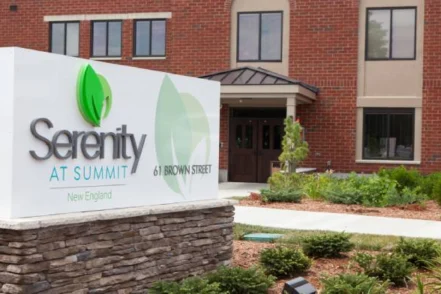 Massachusetts
MassachusettsSerenity at Summit New England
61 Brown Street Haverhill, Massachusetts 01830
-
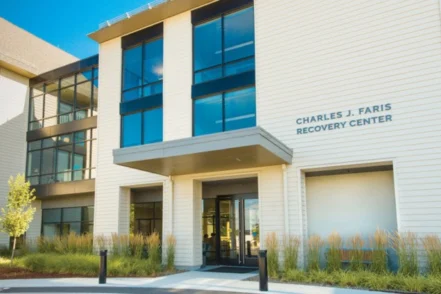 Massachusetts
MassachusettsNew England Recovery Center
153 Oak Street Westborough, Massachusetts 1581
-
 Massachusetts
MassachusettsBaldpate Hospital
83 Baldpate Road G Georgetown, Massachusetts 01833
-
 Massachusetts
MassachusettsSSTAR Stanley Street
386 Stanley Street Fall River, Massachusetts 02720
-
 Massachusetts
MassachusettsTopsail Addiction Treatment
140 Haverhill Street, Suite 8 Andover, Massachusetts 01810
-
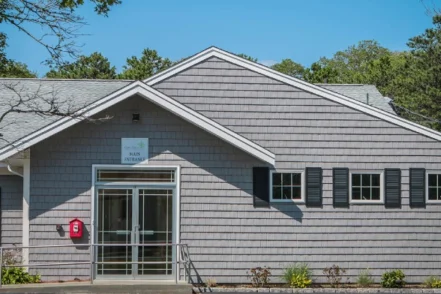 Massachusetts
MassachusettsRecovering Champions
279 Brick Kiln Road Falmouth, Massachusetts 02536
-
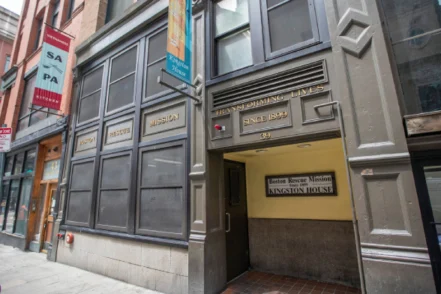 Massachusetts
MassachusettsBoston Rescue Mission Outpatient Counseling
39 Kingston Street Boston, Massachusetts 02111
-
 Massachusetts
MassachusettsAvenues Recovery Center at New England
81 Hall Street Concord, Massachusetts 03301
-
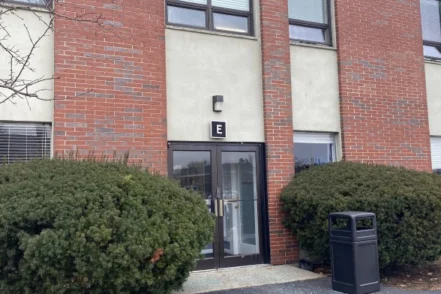 Massachusetts
MassachusettsAftermath Addiction Treatment Center
607 North Ave , Suite 11 E Wakefield, Massachusetts 01880
-
 Massachusetts
MassachusettsNew Horizons Medical
1180 Beacon Street, Suite 3C Brookline, Massachusetts 02446
-
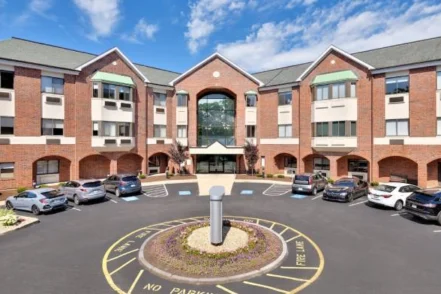 Massachusetts
MassachusettsBedrock Recovery Center
1 Meadowbrook Way Canton, Massachusetts 02021